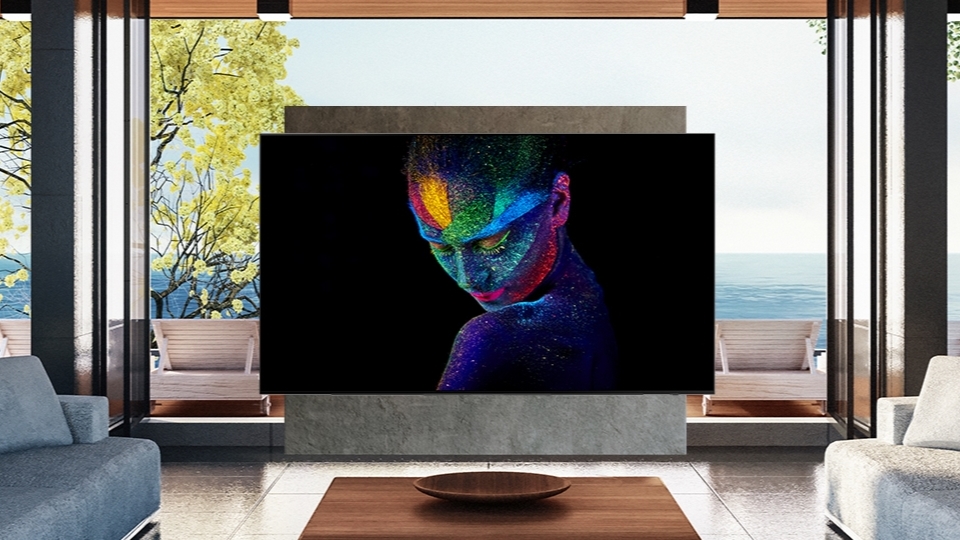Looks like Samsung's cheaper OLED TVs won't arrive this year after all
LG and Samsung may still be fighting – and Samsung’s affordable OLED TV lineup is the casualty

Sign up for breaking news, reviews, opinion, top tech deals, and more.
You are now subscribed
Your newsletter sign-up was successful
Although Samsung is definitely still launching its first-ever OLED 4K TVs this year (the Samsung S95B above, which uses a new and never-before-seen QD-OLED panel, is already available in several countries) it would appear that the ongoing tussle between LG and Samsung may have hit an impasse – and Samsung's hotly-anticipated more affordable W-OLED (white OLED) TV lineup has become the inevitable casualty.
To explain: LG Display is the sole maker of W-OLED panels for TV, and for a little while now the company has been locked in a battle with Samsung over the price of the panels. Previous reports claimed that if the two sides could not reach an agreement by the end of May, Samsung's cheaper OLED TV models would be unlikely to arrive in 2022.
So, here we are coming to the end of May and no dice? Well, not quite. A fresh report from The Elec does not specify the tussle as the main reason for Samsung's delay. It does confirm that Samsung is unlikely to launch W-OLED TV this year, but cites consumer demand issues rather than any ongoing panel pricing argument.
The Elec's sources now claim that demand for Samsung TVs in general (including its LCD TVs) has dipped compared to the spike seen during the pandemic, which means "Samsung is in no hurry to launch W-OLED TVs as it did before".
The report continues that Samsung also asked LG Display to co-develop W-OLED technologies going forward as part of the negotiation. But this was apparently not a condition that LG was receptive to, since any co-project would impose limitations on how LG Display could use and sell the panels later, as set by Samsung.
Samsung's plan not to launch W-OLED TVs this year will almost certainly affect LG Display’s W-OLED shipment target for this year which, according to the report, was set at 10 million units.
Opinion: we still think next year is a better bet for Samsung W-OLEDs

It has been rumored for months that Samsung plans to launch OLED TVs using LG's more standard W-OLED panel (which you'll find on some of the best OLED TVs currently on the market) so for Samsung to postpone the plan owing to lack of demand sounds a little… strange. However, it might be a good thing overall.
At TechRadar, we're hugely interested to see what Samsung's image processing tech can do when combined with OLED panels – and we don't think we're alone here – but our reason for supporting the company's apparent decision to hold off on launching more OLED TVs just yet comes down to one thing: Dolby Vision.
Sign up for breaking news, reviews, opinion, top tech deals, and more.
To date, the company has stoically refused to support this HDR standard, and it's pretty much the only one among the big-brand TV companies still doing so. One of the biggest perks with Dolby Vision is that it can do better things with HDR images on displays with limited brightness – including those exciting W-OLED TVs.
With Samsung's resistance to Dolby seemingly softening (Samsung's 2022 TVs include Dolby Atmos sound for the first time) it's not a huge stretch of the imagination to think that in 2023, Samsung's TV output may include Dolby Vision at last. And that would surely mean a huge boost to the performance of its W-OLED screen TVs.

Becky became Audio Editor at TechRadar in 2024, but joined the team in 2022 as Senior Staff Writer, focusing on all things hi-fi. Before this, she spent three years at What Hi-Fi? testing and reviewing everything from wallet-friendly wireless earbuds to huge high-end sound systems. Prior to gaining her MA in Journalism in 2018, Becky freelanced as an arts critic alongside a 22-year career as a professional dancer and aerialist – any love of dance starts with a love of music. Becky has previously contributed to Stuff, FourFourTwo and The Stage. When not writing, she can still be found throwing shapes in a dance studio, these days with varying degrees of success.